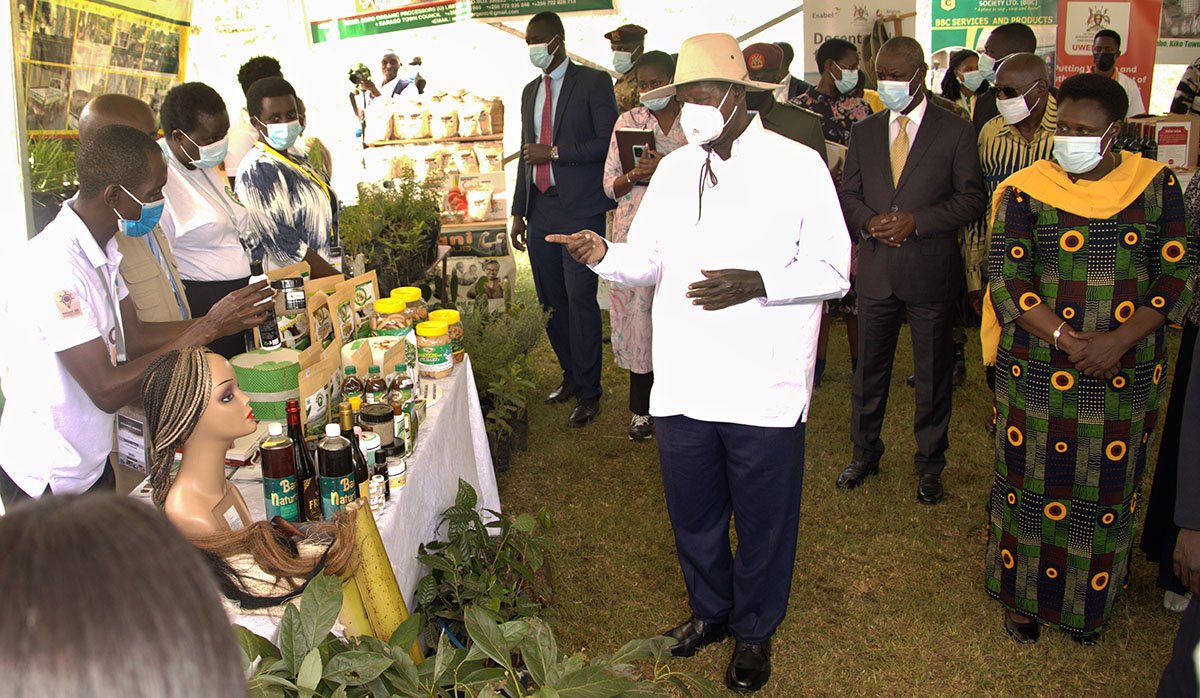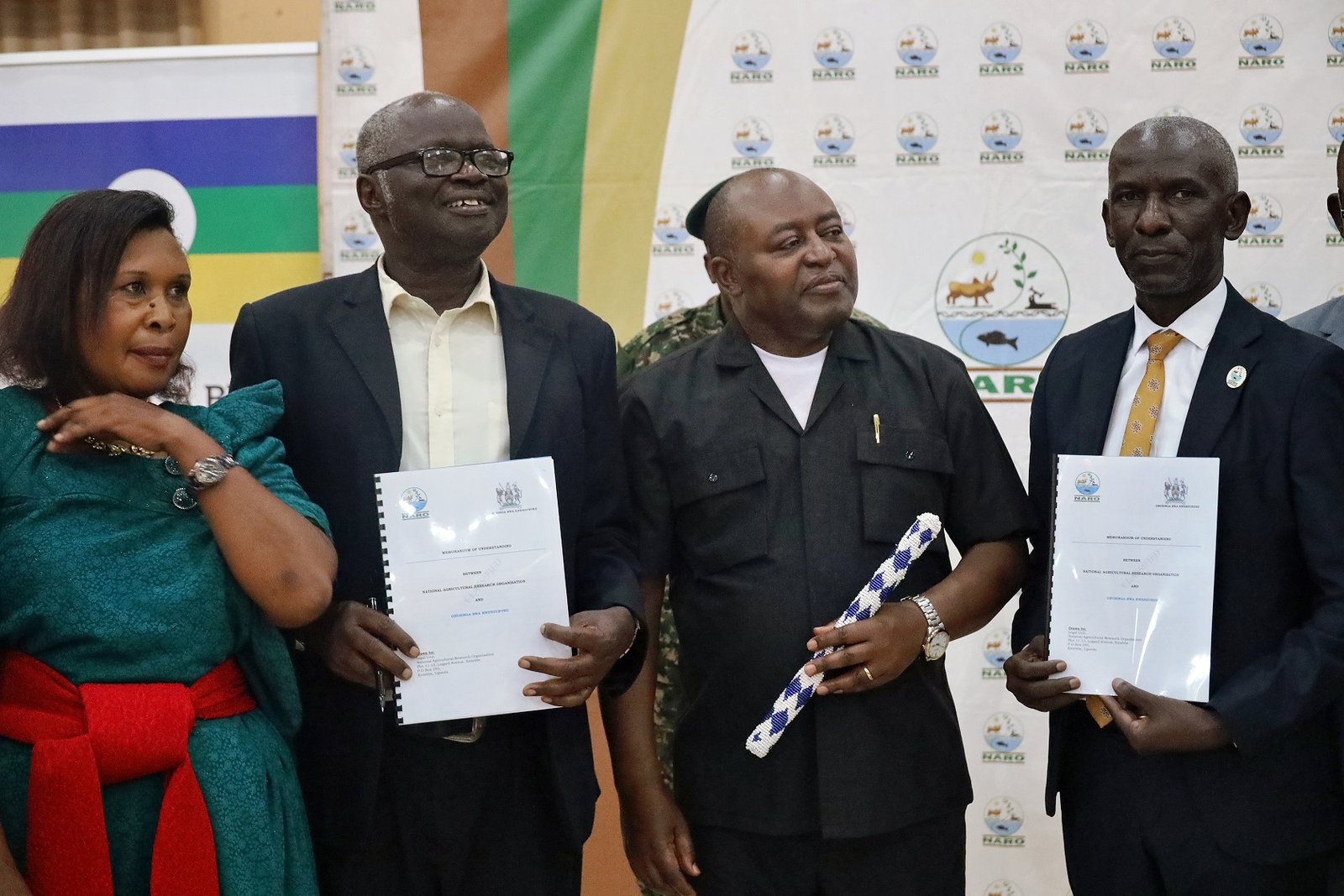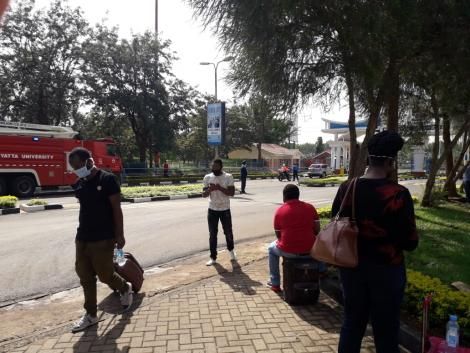The National Agricultural Research Organisation (NARO) participated in the International Labour Day celebrations in Fort Portal Tourism City, where they showcased transformative agricultural technologies with the potential to uplift Ugandans from poverty.
Presiding over the well-attended event, President Yoweri Kaguta Museveni underscored the need to leverage the country’s abundant arable land resources to engage in agricultural systems that generate high returns from small pieces of land.
In an emphatic reiteration of his longstanding call for Ugandans to adopt the four-acre model, which focuses on intensive farming, the President stated that there are seven specific agricultural items—coffee, fruits, dairy, poultry, piggery, fish farming, and cultivating food crops for home consumption—that can exponentially increase incomes at the household level if appropriately mixed on small acreages.
The President offered a clear distinction between intensive and extensive agriculture, noting that the former is suitable for crops that can offer high returns on small lands, while the latter involves crops that require large estates to provide economic value.
He observed that Uganda has up to 40 million acres of arable land, which, if utilized well, can generate over 300 million jobs. He dismissed the perception that there are no jobs in Uganda, instead offering counsel that what some Ugandans lack is the attitude and vision to engage in agricultural models that can generate income.
He cited the example of Mr. Nyakana, a progressive farmer in Fort Portal, who implemented the four-acre model on his slightly above one acre to engage in dairy and poultry farming, now earning over Shs16,000,000 per month.
Nyakana testified at the invitation of the President, revealing that he has since expanded into the production of animal feeds and employs 15 people, 10 of whom earn a monthly wage, while 5 are casual laborers.
The President called for the full involvement of agriculture in the money economy through both intensive and extensive agriculture.
During the celebrations, NARO underscored the President’s key message by exhibiting agricultural technologies, innovations, and management practices with the potential to ignite industrialization and generate jobs on a large scale.
Among the products were value-added products from coffee, including facial cream, body cream, face and body scrub, lotion, and oil. These expand the product lines farmers can obtain from coffee beyond drinkable powder and beans.
From bananas, NARO displayed a prototype of hair extensions in different colors manufactured from banana fiber. The extensions are reusable, non-itchy, and fully biodegradable.
There was also green banana resistant starch, a probiotic beneficial for gut health, and banana dyes that can be used in coloring fabric, which are less toxic and non-allergenic.
With tea extensively grown in the Rwenzori region, NARO exhibited a green tea beverage and oil extracted from tea, ideal for seasoning food, baking, and salad dressing.
The NARO Director-General, Dr. Yona Baguma, previously hinted that it was NARO’s deliberate intention to generate technologies and innovations that can be expanded into full industrial products for job creation and poverty eradication.
He stated that all products are scientifically developed and tested, and NARO is open to partnering with players in the private sector to scale up their production.

















